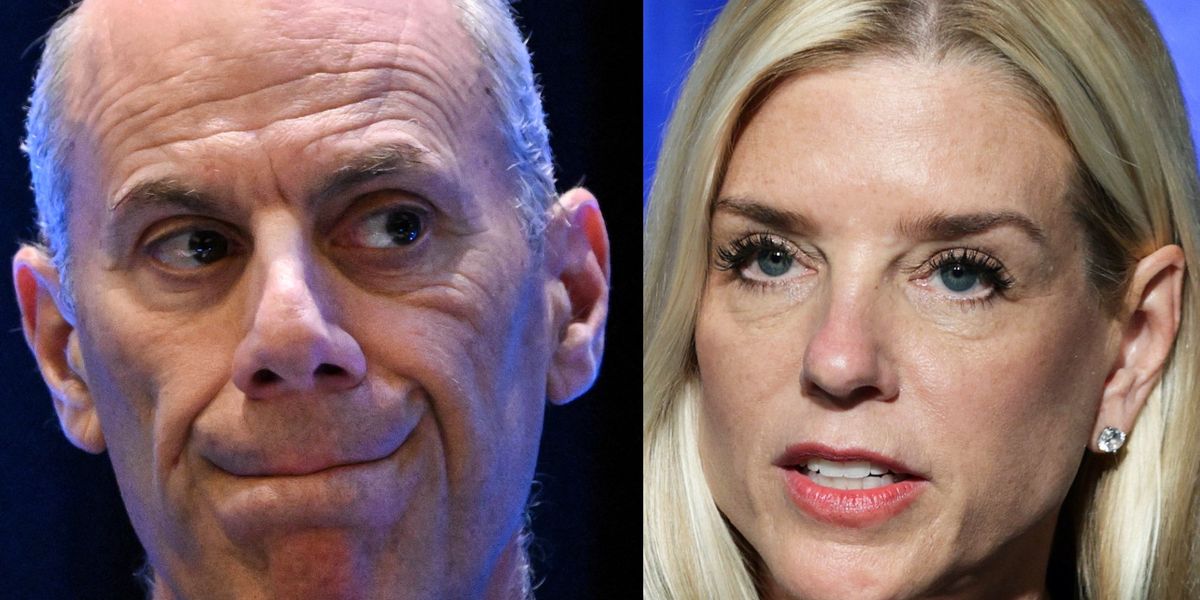U.S. Attorney General Pam Bondi took action against one of the judges who has been blocking the agenda of President Donald Trump.Bondi filed a complaint against U.S. District Court Chief Judge James Boasberg, the judge who is presiding over the administration…
Why it matters
- Pam Bondi's complaint highlights the ongoing tensions between the judicial branch and the Trump administration.
- Judge Boasberg has been a pivotal figure in rulings that have impeded several key initiatives proposed by President Trump.
- The outcome of this complaint could set a significant precedent for the relationship between the executive and judicial branches.
In a move that underscores the ongoing conflicts between the Trump administration and the judiciary, U.S. Attorney General Pam Bondi has filed a complaint against U.S. District Court Chief Judge James Boasberg. This action comes as Judge Boasberg has presided over several cases that have hindered the administration's agenda. Bondi's complaint is seen as a direct challenge to a judge whose decisions have been perceived as obstructive to the President’s policies.
The complaint was filed with the judicial council of the D.C. Circuit, and it alleges that Judge Boasberg has engaged in misconduct. While the specific details of the complaint are yet to be made public, it is reported that Bondi's actions stem from a series of rulings that have repeatedly blocked initiatives put forth by the Trump administration. These rulings have garnered attention for their impact on various fronts, including immigration and environmental policy.
Judge Boasberg, who has served on the federal bench since 2011, gained prominence for his significant rulings, particularly those involving the administration's travel bans and environmental regulations. His decisions have often drawn the ire of Trump supporters, who view them as obstructions to the President’s agenda. The judge's stance has positioned him as a key figure in the ongoing legal battles that define the current political landscape.
The complaint filed by Bondi reflects a broader strategy by the Trump administration to confront judges whose decisions it deems politically motivated. This strategy has been increasingly visible as the administration navigates a series of legal challenges that threaten its policy goals. The filing of such a complaint raises questions regarding the limits of judicial power and the potential for political influence over the judiciary.
Legal experts are closely monitoring this situation, as it could have ramifications beyond the immediate case. If the judicial council decides to take action on Bondi's complaint, it may initiate a review process that could lead to disciplinary measures against Judge Boasberg. Such outcomes could have a chilling effect on judges across the country, particularly those who handle cases involving contentious political issues.
Critics of the Trump administration have expressed concern that Bondi's actions signal an attempt to intimidate judges who rule against the administration. They argue that this could undermine the independence of the judiciary, which is a cornerstone of the American legal system. Supporters of Bondi, however, argue that it is necessary to hold judges accountable for what they perceive as politically biased rulings.
This latest development is likely to reignite debates surrounding judicial independence and the appropriate checks and balances between the branches of government. The Trump administration has frequently challenged judicial decisions, framing them as overreach by judges who do not align with the President's vision for the country.
As the situation unfolds, the implications of Bondi's complaint could resonate throughout the federal court system. A ruling in favor of the administration could embolden further challenges to judicial authority, while a decision that upholds Judge Boasberg's rulings could reinforce the judiciary's role as a counterbalance to executive power.
In summary, the filing of this complaint by Attorney General Pam Bondi against Judge James Boasberg represents a significant moment in the ongoing struggle between the Trump administration and the judiciary. With the potential to set important precedents, this case will be watched closely by legal experts, political analysts, and the public alike as it unfolds in the coming weeks.











